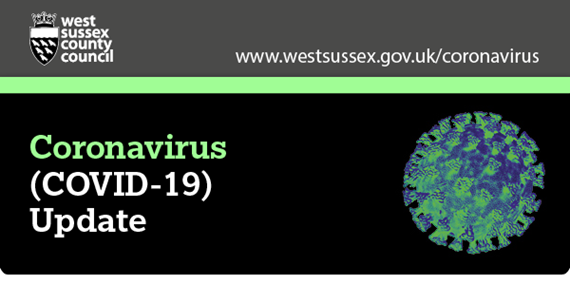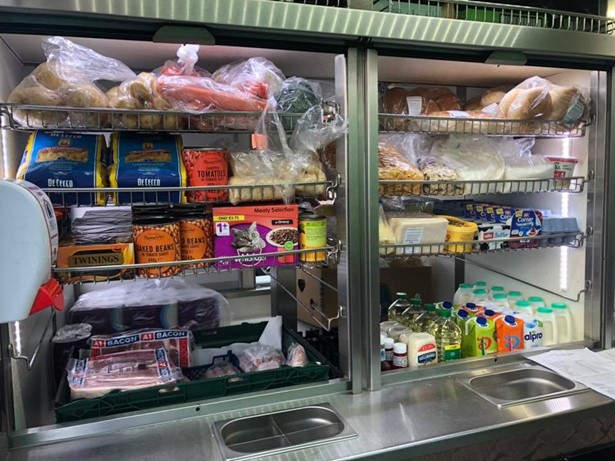As a country, we all need to do what we can to reduce the spread of coronavirus.
That is why the government has given clear guidance on self-isolation, staying at home and away from others, and asked that schools only remain open for those children who absolutely need to attend.
On 23 March the government stepped up measures to prevent the spread of coronavirus and save lives. All businesses and venues outlined in the table below must now close.
Takeaway and delivery services may remain open and operational in line with guidance below. Online retail is still open and encouraged and postal and delivery service will run as normal.
Employers who have people in their offices or onsite should ensure that employees are able to follow Public Health England guidelines including, where possible, maintaining a 2 metre distance from others, and washing their hands with soap and water often, for at least 20 seconds (or using hand sanitiser gel if soap and water is not available).
Parks will remain open but only for individuals and households to exercise once a day. Communal spaces within parks such as playgrounds and football pitches will be closed.
1. Businesses and venues that must remain closed
To reduce social contact, the government has ordered the following businesses and venues to close:
|
Food and drink
|
Exceptions
|
|
Restaurants and public houses, wine bars or other food and drink establishments including within hotels and members’ clubs
|
Food delivery and takeaway can remain operational and can be a new activity supported by the new permitted development right. This covers the provision of hot or cold food that has been prepared for consumers for collection or delivery to be consumed, reheated or cooked by consumers off the premises.
|
|
Cafés and canteens
|
Food delivery and takeaway can remain operational (and as above).
Cafés and canteens at hospitals, police and fire service places of work, care homes or schools; prison and military canteens; services providing food or drink to the homeless.
Where there are no practical alternatives, other workplace canteens can remain open to provide food for their staff and/or provide a space for breaks. However, where possible, staff should be encouraged to bring their own food, and distributors should move to takeaway. Measures should be taken to minimise the number of people in the canteen / break space at any one given time, for example by using a rota.
|
|
Retail
|
Exceptions
|
|
Hairdressers, barbers, beauty and nail salons, including piercing and tattoo parlours
|
|
|
All retail with notable exceptions
|
• Supermarkets and other food shops
• Medical services (such as dental surgeries, opticians and audiology clinics, physiotherapy clinics, chiropody and podiatry clinics, and other professional vocational medical services)
• Pharmacies and chemists, including non-dispensing pharmacies
• Petrol stations
• Bicycle shops
• Hardware shops and equipment, plant and tool hire
• Veterinary surgeries and pet shops
• Agricultural supplies shops
• Corner shops and newsagents
• Off-licences and licenced shops selling alcohol, including those within breweries
• Laundrettes and dry cleaners
• Post offices
• Vehicle rental services
• Car garages and MOT services
• Car parks
• High street banks, building societies, short-term loan providers, credit unions and cash points
• Storage and distribution facilities, including delivery drop off points where they are on the premises of any of the above businesses
• Public toilets
• Shopping centres may stay open but only units of the types listed above may trade
|
|
Outdoor and indoor markets
|
Market stalls which offer essential retail, such as grocery and food.
|
|
Auction houses
|
|
|
Accommodation
|
Exceptions
|
|
Hotels, hostels, B&Bs, holiday rentals, campsites and boarding houses for commercial use
|
Where people live in these as interim abodes whilst their primary residence is unavailable, or they live in them in permanently they may continue to do so.
Critical workers and non-UK residents who are unable to travel to their country of residence during this period can continue to stay in hotels or similar where required.
People who are unable to move into a new home due to the current restrictions can also stay at hotels.
Where hotels, hostels, and B&Bs are providing rooms to support homeless and other vulnerable people such as those who cannot safely stay in their home, through arrangements with local authorities and other public bodies, they may remain open.
Those attending a funeral will be able to use hotels when returning home would be impractical.
Hotels are allowed to host blood donation sessions.
|
|
Caravan parks/sites for commercial uses
|
Where people live permanently in caravan parks or are staying in caravan parks as interim abodes where their primary residence is not available, they may continue to do so.
|
|
Non-residential institutions
|
Exceptions
|
|
Libraries
|
Digital library services and those where orders are taken electronically, by telephone or by post (for example no-contact Home Library Services) may continue.
|
|
Community centres, youth centres and similar
|
For the purpose of hosting essential voluntary or public services, such as food banks, homeless services, and blood donation sessions.
Public venues that host blood donation sessions can continue to open temporarily for these services only. A distance of two metres should be maintained as per Public Health England guidelines.
|
|
Places of worship
|
Funerals in places of worship and crematoria, where the congregation are members of the deceased’s household or close family. In a case where no members of the deceased’s household or family members are attending, friends can attend. A distance of two metres should be maintained between every household group, as per Public Health England guidelines.
A minister of religion or worship leader may leave their home to travel to their place of worship. A place of worship may broadcast an act of worship, whether over the internet or otherwise.
For the purpose of hosting essential voluntary or public service, such as food banks, homeless services, and blood donation sessions.
|
|
Assembly and leisure
|
Exceptions
|
|
Museums and galleries
|
|
|
Nightclubs
|
|
|
Cinemas, theatres and concert halls
|
Small group performances for the purposes of live streaming could be permissible where Public Health England guidelines are observed and no audience attend the venue.
|
|
Bingo halls, casinos and betting shops
|
|
|
Spas and massage parlours
|
|
|
Skating rinks
|
|
|
Fitness studios, gyms, swimming pools or other indoor leisure centres
|
Any suitable assembly or leisure premises may open for blood donation sessions.
|
|
Arcades, bowling alleys, soft play centres and similar
|
|
|
Funfairs
|
|
|
Outdoor recreation
|
Exceptions
|
|
Playgrounds, sports courts and pitches, and outdoor gyms or similar
|
|
These businesses and venues must close as they involve prolonged close social contact, which increases the chance of infection spreading.
Providers of funeral services such as funeral directors and funeral homes may remain open, subject to Public Health England guidelines as mentioned in the table above.
2. Work carried out in people’s homes
Work carried out in people’s homes, for example by tradespeople carrying out repairs and maintenance, can continue, provided that the tradesperson is well and has no symptoms.
Again, it will be important to ensure that Public Health England guidelines, including maintaining a two-metre distance from any household occupants, are followed to ensure everyone’s safety.
No work should be carried out in any household which is isolating or where an individual is being shielded, unless it is to remedy a direct risk to the safety of the household, such as emergency plumbing or repairs, and where the tradesperson is willing to do so. In such cases, Public Health England can provide advice to tradespeople and households.
No work should be carried out by a tradesperson who has coronavirus symptoms, however mild.
For more information, see guidance published 23 March 2020.
3. Takeaway and delivery facilities should remain open and operational.
This means people can continue to enter premises to access takeaway services, including delivery drivers.
Businesses are encouraged to take orders online or by telephone, and businesses should not provide seating areas, indoors and outdoors, for customers to consume food and drink on. Ordering in advance is strongly encouraged to avoid waiting in, as per Public Health England guidelines.
Planning regulation has been changed to enable restaurants, cafés and pubs which do not currently offer delivery and hot food takeaway to do so. The legislation can be accessed online.
People must not consume food or drinks on site at restaurants, cafés or pubs whilst waiting for takeaway food.
Those venues offering takeaway or delivery services must not include alcoholic beverages in this list if their licence does not already permit.
4. Length of closure
We are asking the businesses and venues outlined above not to open for trade from close of trade 23 March 2020.
The first point of review for these measures will be in three weeks. This review will consider their necessity and effectiveness in light of changing circumstances.
5. Compliance
Everyone is instructed to comply with the rules issued by the government in relation to coronavirus, in order to protect both themselves and others.
As of 1pm on 26 March 2020 new Regulations extending the restrictions are now enforceable by law in England due to the threat to public health. These supersede Regulations that came into force at 2pm on 21 March 2020. They are enforceable in Wales from 4pm on 26 March 2020 and Scotland from 7.15pm on 26 March 2020.
Where an owner, proprietor or manager carrying out a business (or a person responsible for other premises) contravenes the Regulations, that person commits an offence.
In England, Environmental Health and Trading Standards officers will monitor compliance with these regulations, with police support provided if appropriate. Businesses and venues that breach them will be subject to prohibition notices, and fixed penalties. With the support of the police, prohibition notices can be used to require compliance with the Regulations including requiring that an activity ceases.
If prohibition notices are not followed, or fixed penalty notice not paid, you may also be taken to court with magistrates able to impose potentially unlimited fines.
6. Financial support
Her Majesty’s Treasury also announced on 20 March 2020 a comprehensive series of measures supporting wages, cash-flow for businesses, and the welfare system.
7. Business support
In England, under the Retail, Hospitality and Leisure Grant (RHLG) announced on 16 March 2020, businesses and venues in the retail, hospitality and leisure sectors will be eligible for cash grants of up to £25,000 per property.
Eligible businesses and venues in these sectors with a property that has a rateable value of up to £15,000 will receive a grant of £10,000. Eligible businesses and venues in these sectors with a property that has a rateable value of between £15,001 and £51,000 will receive a grant of £25,000. Businesses and venues with a rateable value of over £51,000 are not included in this scheme.
For more information please visit the government’s business support page.
8. Business rates
In England, as announced on 16 March 2020, the government will provide a business rates holiday for businesses and venues in the retail, hospitality and/or leisure sector. This includes the businesses and venues in scope for closure listed above. This will apply automatically to your next business rates bill in April 2020.
9. Further information
This guidance will be updated regularly as the situation develops. For information about support for business, please go to the government’s Business Support page or visit GOV.UK.
Devolved Administrations may issue further guidance on these matters within their nations.
This publication is available at https://www.gov.uk/government/publications/further-businesses-and-premises-to-close/further-businesses-and-premises-to-close-guidance




